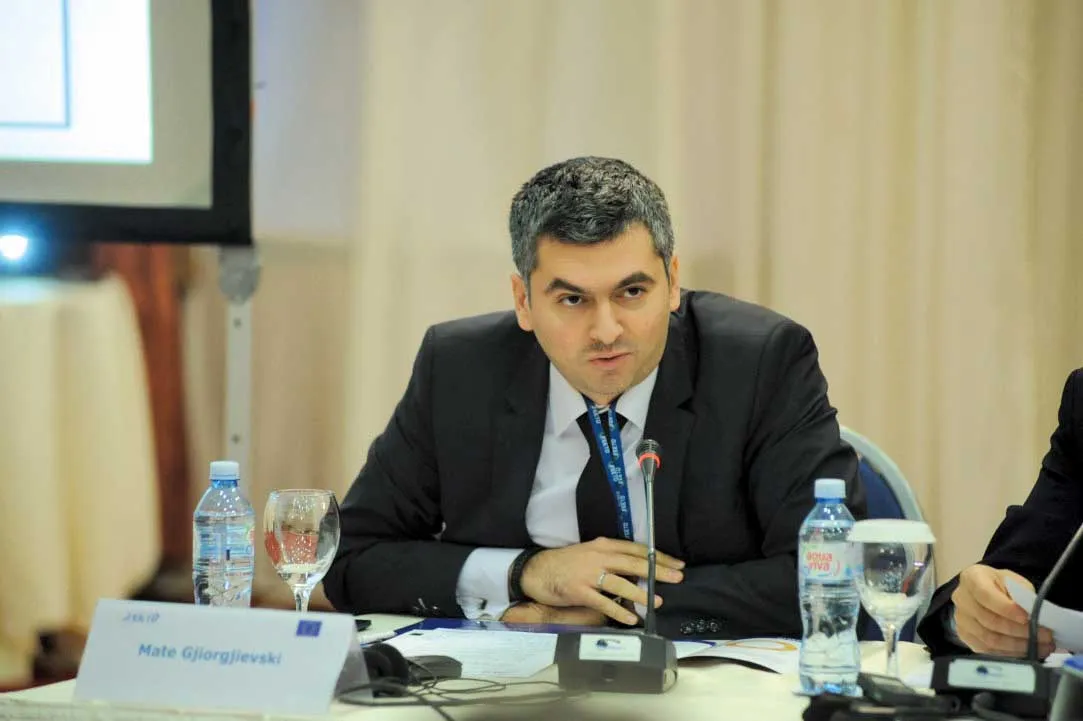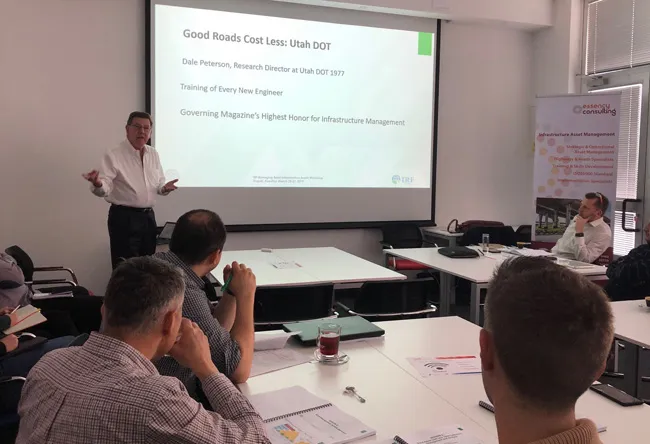SEETO’s acting general manager reflects on a decade of transition in South East Europe
Ten years ago, the Western Balkans region and the European Commission agreed on a regional transport network consisting of the Pan- European corridors crossing the region to which additional routes were added. The resulting SEETO Comprehensive Road Network was formally recognised in 2013 by the European Union as part of the Trans- European Transport Network for South East Europe.
By extending Europe’s main corridors
May 14, 2015
Read time: 3 mins

SEETO’s acting general manager reflects on a decade of transition in South East Europe
Ten years ago, the Western Balkans region and the2465 European Commission agreed on a regional transport network consisting of the Pan- European corridors crossing the region to which additional routes were added. The resulting SEETO Comprehensive Road Network was formally recognised in 2013 by the 1116 European Union as part of the Trans- European Transport Network for South East Europe.
By extending Europe’s main corridors, SEETO’s comprehensive and future core network sets the foundations for the adoption of policies that are aligned with the European transport political, regulatory and investment framework. It also takes on broader political significance for a region that is now striving to become fully integrated with the European Union. In the longer run, shared corridors will translate into shared ownership and coordinated planning.
Preserving existing road assets remains a persisting challenge across the region. Western Balkan states have, by and large, placed new road investments ahead of maintaining existing road assets. An undermaintained road network hinders our collective ability to fully leverage corridorwide investments.
At SEETO, we have voiced out our concern and encouraged proactive approaches to ensure satisfactory performance levels on the region’s core network of roads. SEETO states, with assistance of the European Commission and the World Bank are now making attempts in transforming the inherited inefficient public enterprises in the road sector and in putting a proper road management system in place.
At regional level, we are also working on updating current data collection systems enabling more relevant economic analysis and the identification of asset gaps. Within the SEETO Flagship axes initiative, we have noted the current state of art on some of the main (road) axes in the region with respect to their level of performance and the urgency of any likely interventions.
SEETO reached an important milestone last year with the 10-year anniversary of its founding. Over this period, tremendous progress has been achieved in the regional cooperation agenda. From a purely datagathering oriented observatory, SEETO has evolved into an internationally recognised institution with a credible role in in assembling relevant transport information and prioritising infrastructure projects.
SEETO strives to offer a platform to conduct coherent and regionally aligned transport policy, connecting individual projects to an overall transport system through soft measures aimed at reducing barriers, increasing overall performance, and enhancing sustainability.
The Western Balkans are now much better prepared to embrace the reform agenda ensuring they can fully prepare for, and leverage the results of, investments in the transport sector.
Ten years ago, the Western Balkans region and the
By extending Europe’s main corridors, SEETO’s comprehensive and future core network sets the foundations for the adoption of policies that are aligned with the European transport political, regulatory and investment framework. It also takes on broader political significance for a region that is now striving to become fully integrated with the European Union. In the longer run, shared corridors will translate into shared ownership and coordinated planning.
Preserving existing road assets remains a persisting challenge across the region. Western Balkan states have, by and large, placed new road investments ahead of maintaining existing road assets. An undermaintained road network hinders our collective ability to fully leverage corridorwide investments.
At SEETO, we have voiced out our concern and encouraged proactive approaches to ensure satisfactory performance levels on the region’s core network of roads. SEETO states, with assistance of the European Commission and the World Bank are now making attempts in transforming the inherited inefficient public enterprises in the road sector and in putting a proper road management system in place.
At regional level, we are also working on updating current data collection systems enabling more relevant economic analysis and the identification of asset gaps. Within the SEETO Flagship axes initiative, we have noted the current state of art on some of the main (road) axes in the region with respect to their level of performance and the urgency of any likely interventions.
SEETO reached an important milestone last year with the 10-year anniversary of its founding. Over this period, tremendous progress has been achieved in the regional cooperation agenda. From a purely datagathering oriented observatory, SEETO has evolved into an internationally recognised institution with a credible role in in assembling relevant transport information and prioritising infrastructure projects.
SEETO strives to offer a platform to conduct coherent and regionally aligned transport policy, connecting individual projects to an overall transport system through soft measures aimed at reducing barriers, increasing overall performance, and enhancing sustainability.
The Western Balkans are now much better prepared to embrace the reform agenda ensuring they can fully prepare for, and leverage the results of, investments in the transport sector.









